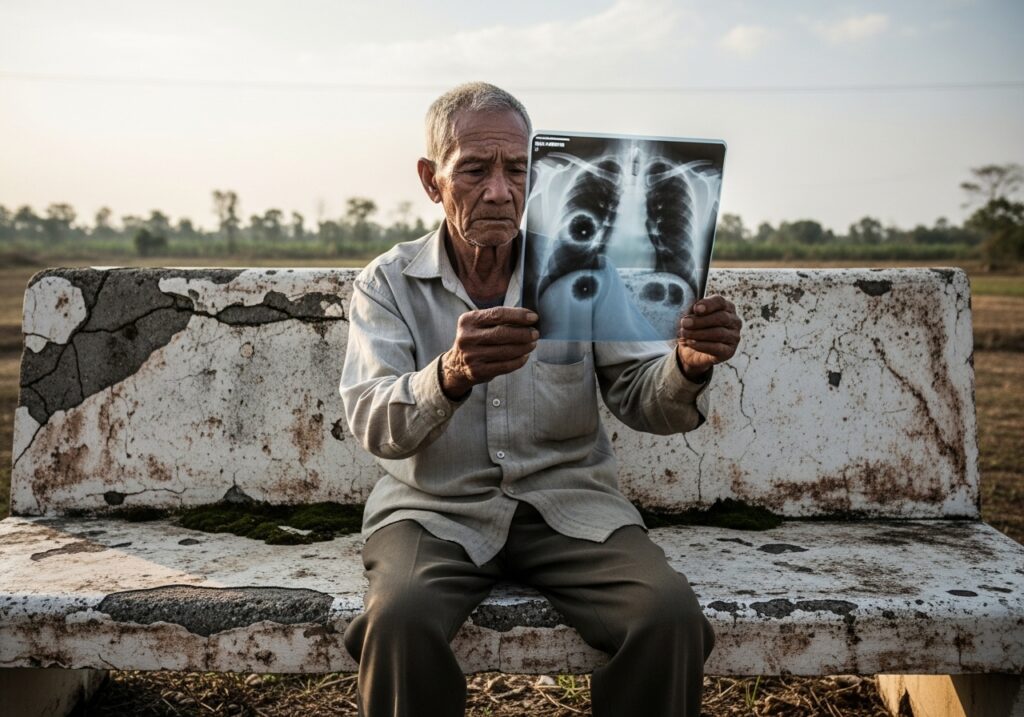Here’s a fun little fact to ruin your lunch: cancer is on pace to kill 18.6 million people a year by 2050. That’s not a typo. That’s nearly 75% more than it kills today. It’s the kind of number that makes you stop mid-sip of your overpriced oat milk latte—unless, of course, you’re too busy arguing over pronouns or trying to ban gas stoves.
A new study published in The Lancet, a respected medical journal that’s somehow still allowed to talk about real problems, paints a bleak picture. The global cancer burden has already doubled since 1990. Now, researchers from the Institute for Health Metrics and Evaluation (IHME) at the University of Washington say it’s about to get worse. A lot worse.
Before we go any further, let’s be clear—this isn’t because of some new mystery illness or a sudden spike in radioactive bananas. No, the biggest drivers are population growth and aging. In other words, we’re living longer, but not necessarily better. And in too many places, especially in low- and middle-income countries, people are aging without access to decent healthcare, nutrition, or even clean air.
More than half of all new cancer cases and two-thirds of cancer deaths are expected to hit these developing nations. And while it’s tragic, it’s also avoidable—because here’s the kicker: a huge chunk of cancer deaths are actually preventable.
Tobacco use, especially among men, remains the number one killer. In 2023, it was responsible for 21% of global cancer deaths. That’s right—light up a cigarette, and you might as well light a match for your health. But it doesn’t stop there. Add in alcohol abuse, unhealthy diets, occupational hazards, and air pollution, and you’ve got the Deadly Vices Bingo Card.
Women aren’t off the hook either. The biggest culprits for female cancer deaths are obesity and high blood sugar. Translation? A steady diet of ultra-processed food and sugary drinks is doing more than just padding waistlines—it’s fueling a global health crisis.
And let’s not forget the elephant in the room: HPV infections from unsafe sex, which are still the leading cause of cancer deaths in low-income countries. But heaven forbid we talk about personal responsibility or moral values in the age of TikTok and drag queen story hour. That might be offensive.
One of the study’s authors, Dr. Theo Vos, pointed out that these are “modifiable risk factors.” In English, that means we could do something about it. If people stopped smoking, drank less, ate real food, and, dare I say it, lived with a little more discipline, we could save millions of lives.
But here’s the problem. The same people who told us to “trust the science” for every lockdown, mask, and jab seem strangely silent when it comes to pushing back against Big Tobacco, Big Sugar, and the cultural nihilism that tells people to “do whatever feels good.” The media won’t touch it. Politicians won’t touch it. And the bureaucrats? They’re too busy regulating your gas grill and trying to mandate 15-minute cities.
So what do we do? For starters, we stop pretending that all lifestyles are equally healthy. They’re not. We stop rewarding personal irresponsibility and start promoting the kind of habits—yes, even old-fashioned ones—that actually lead to a longer, healthier life.
Cancer doesn’t care about your feelings. It doesn’t care about your identity. It doesn’t care what hashtags are trending. It’s coming for the careless, the overindulgent, and the unprepared. The good news? We can fight back. But it’s going to take a lot more than another government campaign or another round of “awareness” ribbons.
It’s going to take a culture shift—one driven by truth, discipline, and common sense. If we want to stop this tidal wave of cancer deaths, we’d better start now. Because unlike the nonsense coming out of Washington for the last few decades, this crisis is very real—and it doesn’t care who you voted for.
